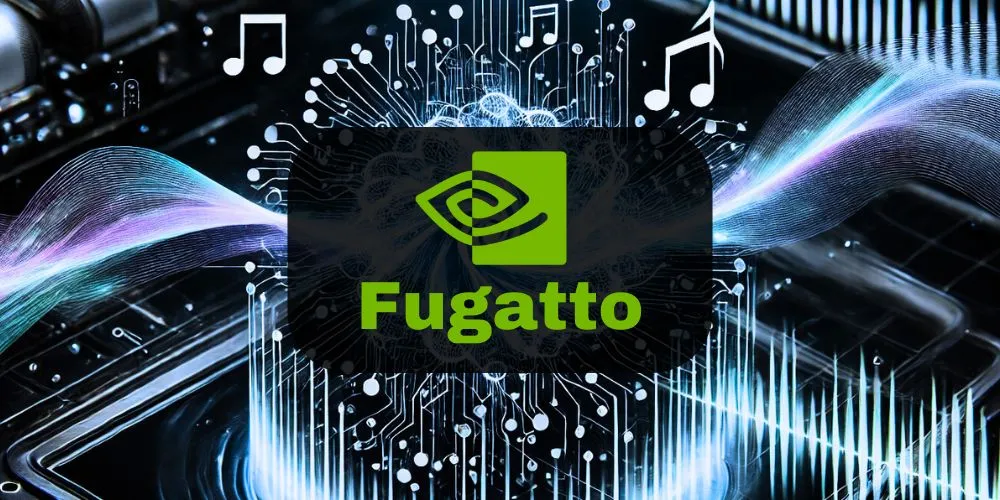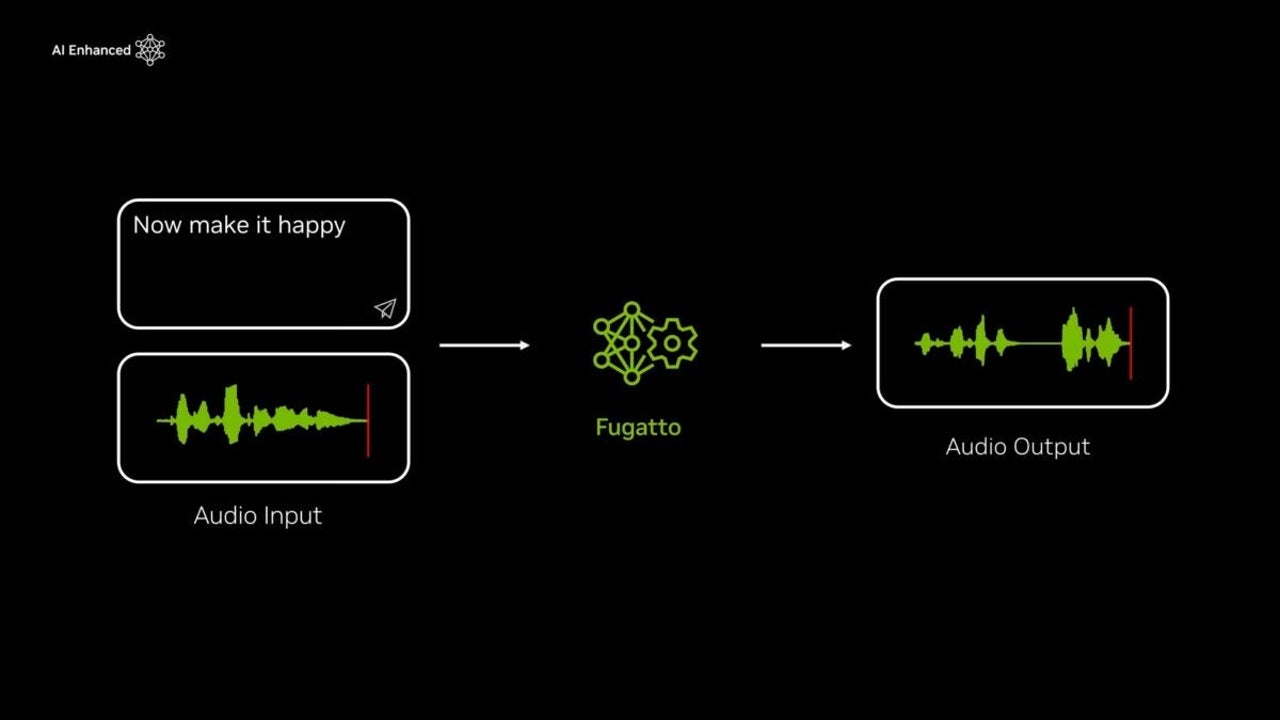Nvidia has unveiled a groundbreaking AI model that promises to redefine the landscape of audio production. Named Fugatto—short for Foundational Generative Audio Transformer Opus 1—this powerful tool leverages artificial intelligence to generate, modify, and transform sound in ways that were previously unimaginable. Whether you’re a music producer, a filmmaker, a game developer, or an advertiser, Fugatto’s capabilities could fundamentally alter the way you create and interact with audio. Let’s dive deeper into how this innovative technology works and explore the vast range of applications it could unlock for both professionals and enthusiasts alike.
Here's ads banner inside a post

A New Era for Music Production
At the heart of Fugatto’s allure is its ability to revolutionize the music creation process. Traditionally, music production involves a blend of creativity, technical skills, and time-consuming work. Producers and artists must assemble various elements—like melodies, harmonies, vocals, and instruments—into a cohesive and polished track. Fugatto, however, promises to streamline and enhance this process in ways that could significantly reduce the effort required while expanding the creative possibilities available to musicians.
Fugatto is capable of creating entire musical compositions based solely on text prompts. This means a producer could simply describe the kind of song they want—perhaps “a mellow, jazz-inspired track with a smooth saxophone melody and soft piano chords”—and the AI would generate a complete song that aligns with the description. Not only can Fugatto create original music, but it can also alter existing tracks in remarkable ways. A producer can change the emotion conveyed by a singer’s voice, modify their accent, or even add and remove instruments from a piece without losing the track’s integrity.
Here's ads banner inside a post

Ido Zmishlany, a multi-platinum producer and songwriter, believes that AI models like Fugatto will play a pivotal role in shaping the future of music. As Zmishlany points out, AI tools aren’t intended to replace human creativity, but rather to enhance it. “Fugatto will help artists rapidly prototype their ideas and experiment with combinations that they might not have considered,” he says. “It’s about freeing up the artist to focus on the vision, while the technology handles the heavy lifting.”

Here's ads banner inside a post
The implications for the music industry are profound. Independent artists who lack access to expensive recording studios or professional production teams could use Fugatto to create polished tracks without needing specialized skills or equipment. For established artists and producers, Fugatto could serve as a powerful tool for experimentation, offering new ways to tweak and perfect their music.
Expanding Beyond Music: The Versatility of Fugatto
While music production is a natural application for Fugatto, the model’s versatility extends far beyond the realm of music. Nvidia has highlighted several other potential use cases that could revolutionize industries such as advertising, gaming, and language learning.
Voiceovers in Advertising
In advertising, voiceovers play a crucial role in delivering a message that resonates with audiences. However, the traditional process of creating voiceovers—especially for international campaigns—can be cumbersome. If a company wants to run a global marketing campaign, they typically need to record multiple versions of the same ad in different languages, often with different voice actors to match cultural nuances and regional preferences.

Fugatto could streamline this process by allowing marketers to modify existing voiceovers to suit different regions or languages. Instead of hiring new voice actors for each market, the AI model could adapt a single voice recording, adjusting the accent, tone, and even emotional delivery to align with the target audience. This could drastically reduce the time and cost involved in global advertising campaigns while still maintaining high-quality, localized voiceovers.
Enhancing Language Learning
In the realm of education, Fugatto has the potential to enhance language learning tools by providing more personalized and dynamic experiences for students. Language learners often struggle to understand and emulate the accents and intonations of native speakers, especially when practicing with automated tools. Fugatto could address this challenge by allowing educators and students to customize the voice of the speaker. For example, a learner could choose to hear the content in a voice that sounds like a friend or family member, making the experience more relatable and engaging.

Moreover, Fugatto could modify the pacing, tone, and emphasis of speech to match the learner’s proficiency level. For beginners, it could slow down speech and simplify vocabulary, while for advanced learners, it could introduce more complex sentence structures and regional accents. This level of customization could make language acquisition more intuitive and effective.
Video Game Development
Video game developers could also benefit greatly from Fugatto’s capabilities. In gaming, sound design is a critical component of immersing players in a dynamic, interactive world. Traditionally, game developers rely on pre-recorded sound effects, music, and voice acting that must be carefully synchronized with in-game events. Fugatto could enable developers to create new audio assets on the fly based on player inputs, adding a level of responsiveness and interactivity that was previously difficult to achieve.

For example, the AI model could generate voiceovers in real-time based on the actions a player takes or modify background music to reflect the mood of the game at any given moment. If a player enters a new environment, the AI could adjust the sound design to match the setting, ensuring a seamless auditory experience that enhances immersion. Additionally, Fugatto could allow for more varied voice acting, as developers could modify characters’ voices on the fly to reflect different emotional states or accents depending on the narrative context.
How Fugatto Works
Fugatto’s power lies in its underlying architecture. The model uses a whopping 2.5 billion parameters, which are the weights and biases in its neural network that help it understand and generate sound. Nvidia’s team of researchers worked for over a year to fine-tune the model and ensure it could handle the complex nature of sound, which is much more nuanced than visual data like images or videos. Sound waves can vary in pitch, tone, volume, and texture, and the ability to generate or manipulate these variables in a coherent and meaningful way is no small feat.
Fugatto was trained using DGX systems powered by 32 Nvidia H100 Tensor Core GPUs, which are designed to handle the enormous computational demands of AI models. These GPUs help the model process vast amounts of data in parallel, enabling it to generate high-quality audio quickly. As a result, Fugatto is capable of real-time audio generation and transformation, which could have huge implications for industries that rely on rapid content creation, like gaming and advertising.

The Future of Fugatto
Despite its impressive capabilities, Nvidia has not yet announced when Fugatto will be publicly available. However, given the increasing demand for AI-powered tools in creative industries, it’s likely that the model will be released or integrated into Nvidia’s broader software ecosystem at some point in the near future. For now, the technology remains in the hands of select researchers and developers, but its potential is undeniable.
As AI continues to evolve, tools like Fugatto will become increasingly integrated into the creative process. Rather than replacing human creators, these technologies will augment their capabilities, allowing them to push the boundaries of what’s possible in audio production. Whether you’re an artist looking to craft the perfect melody, an advertiser seeking to localize a campaign, or a game developer trying to enhance player immersion, Fugatto promises to be a game-changer.

In the coming years, we may look back at Fugatto as the moment when AI truly began to transform the world of sound—a moment when creativity and technology collided in ways that made audio production more accessible, dynamic, and exciting than ever before. The future of sound is here, and it’s powered by Fugatto.

